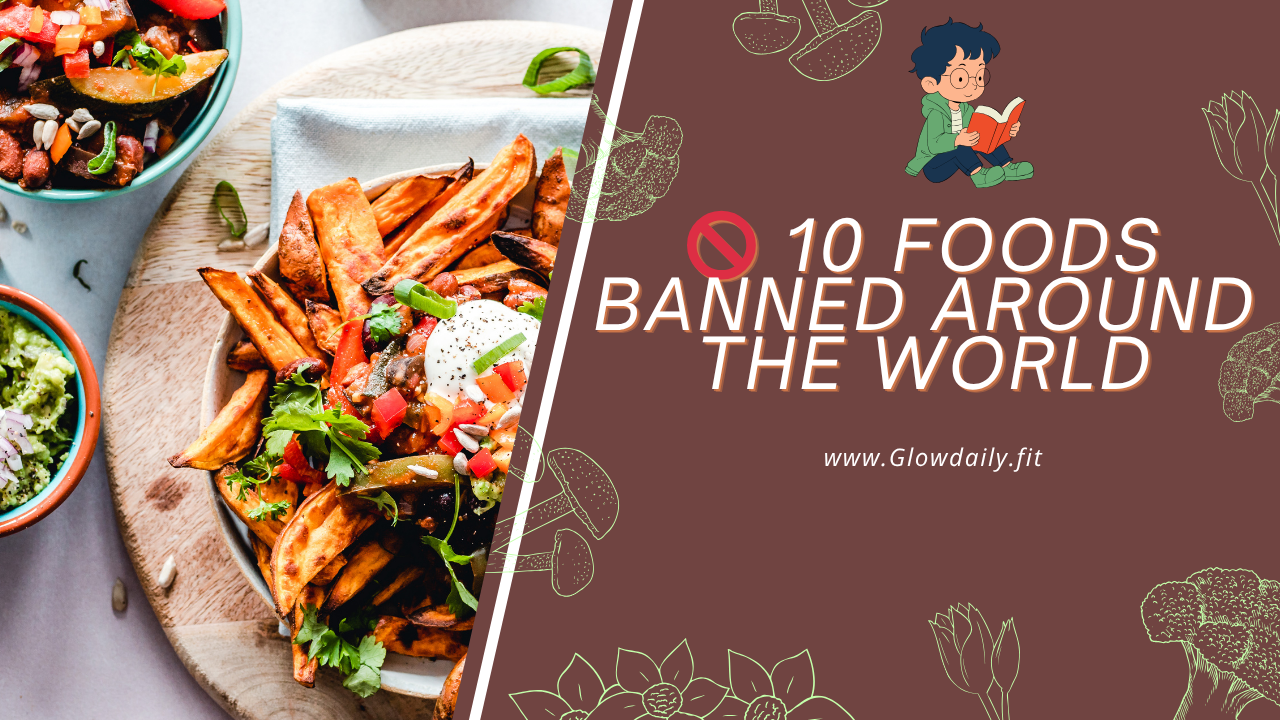Food is a cultural bridge — but sometimes, what’s considered normal in one country is illegal in another. Due to health risks, ethical concerns, or environmental impact, certain foods are banned in different parts of the world. Some may surprise you!
Here are 10 controversial foods that are banned around the world — and the reasons why.
1. 🧬 Genetically Modified (GM) Foods
Banned in: Many countries in Europe (including France, Germany, and Austria)
Why: Health concerns and environmental risks have led several countries to ban or heavily restrict genetically modified crops and products, despite their widespread use in the U.S.
2. 🥩 Ractopamine-Fed Meat
Banned in: The European Union, China, and Russia
Why: Ractopamine is a growth-promoting drug used in pork and beef production in the U.S. It’s been linked to health concerns in humans, leading many countries to ban its use entirely.
3. 🥚 Kinder Surprise Eggs
Banned in: United States (originally)
Why: U.S. laws prohibit non-edible items inside food due to choking hazards. While Kinder Joy is now legal, the original Kinder Surprise with a toy hidden inside the chocolate egg remains banned.
4. 🐟 Fugu (Pufferfish)
Banned in: European Union
Why: Fugu contains deadly toxins if not prepared correctly. Only specially trained chefs in Japan are licensed to serve it. The EU bans it outright due to safety concerns.
5. 🧈 Artificial Food Dyes (Certain Colors)
Banned in: Norway, Finland, and Austria (certain dyes like Yellow #5, #6, Red #40)
Why: These dyes are linked to hyperactivity and behavioral issues in children. Some countries have banned or require warning labels on foods using artificial coloring.
6. 🧀 Casu Marzu (Maggot Cheese)
Banned in: The United States and EU (officially)
Why: This Sardinian cheese contains live maggots and is considered unsafe due to hygiene concerns. Still, locals often eat it illegally or underground.
7. 🐣 Foie Gras
Banned in: India, the UK (under consideration), and California (U.S.)
Why: Foie gras is made by force-feeding ducks or geese to fatten their liver. Animal cruelty concerns have led to bans in several places.
8. 🐂 Hormone-Treated Beef
Banned in: European Union
Why: Beef treated with growth hormones is allowed in the U.S. but banned in the EU due to concerns about cancer risk and hormone disruption in humans.
9. 🐢 Shark Fin Soup
Banned in: Several U.S. states, Canada, and the EU
Why: Shark finning involves removing fins and discarding the rest of the shark back into the ocean, often still alive. It’s considered cruel and threatens shark populations.
10. 🧁 Brominated Flour & Vegetable Oil
Banned in: EU, China, and India
Why: Bromate (a chemical used to improve dough) is linked to cancer in animals. Many countries have banned it, but it’s still allowed in some baked goods and sodas in the U.S.
🌍 Final Thoughts
Different countries have different standards when it comes to food safety and ethics. While some of these bans may seem extreme, they often reflect deeper concerns about health, the environment, and animal welfare.
🍽️ Next time you eat, ask yourself: would this be legal somewhere else in the world?

[…] 10 Foods Banned Around the World (And Why) […]